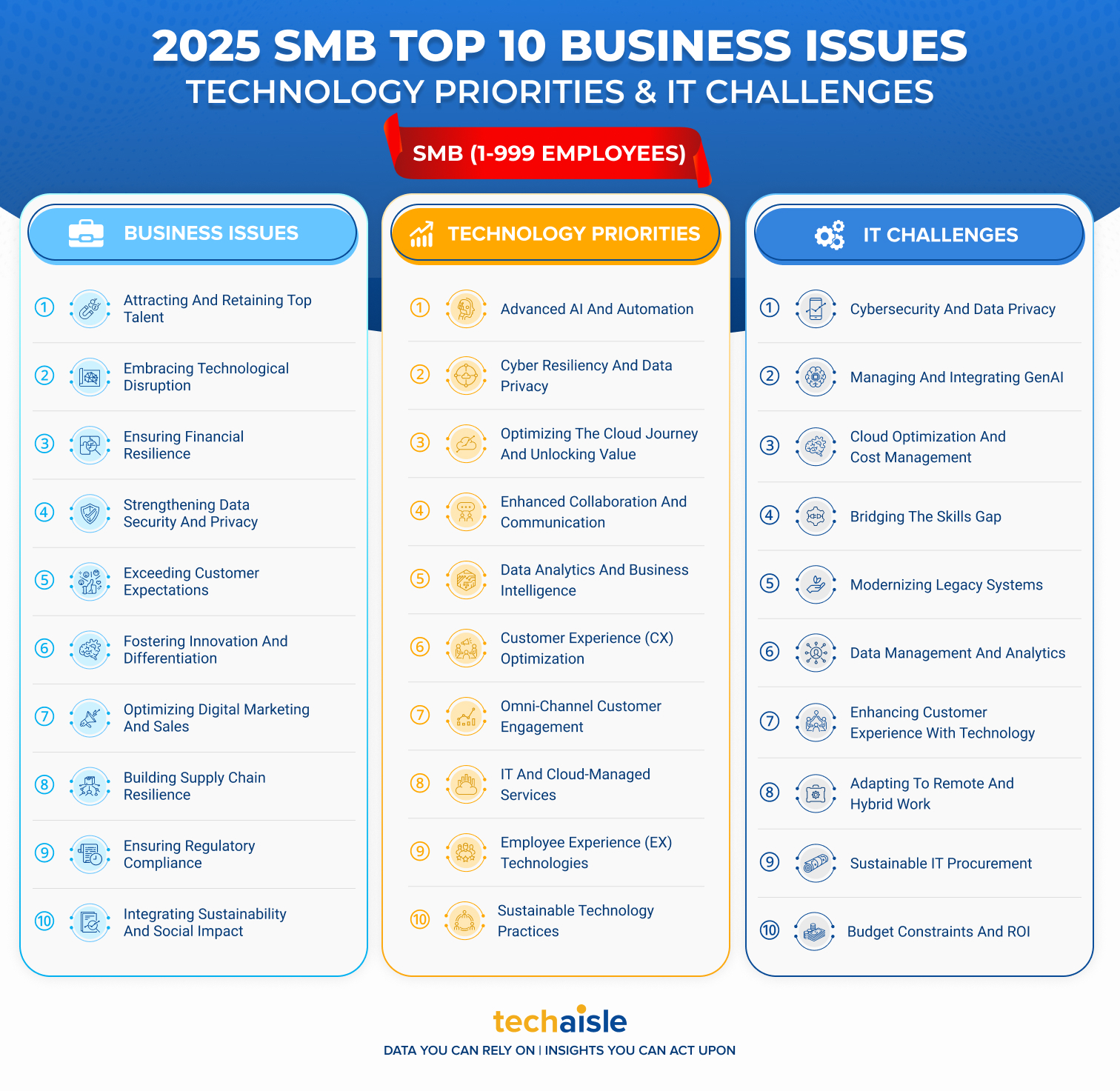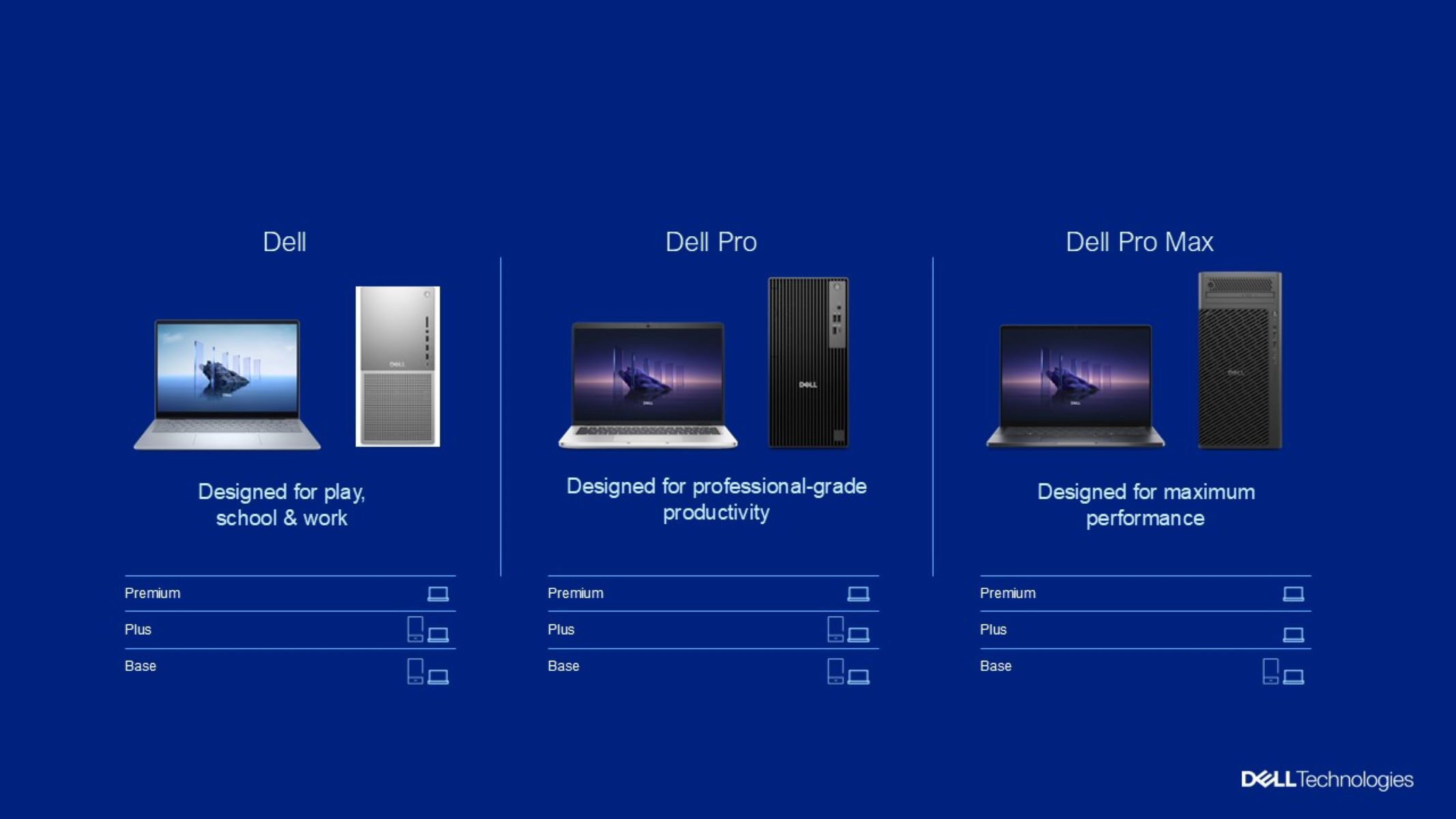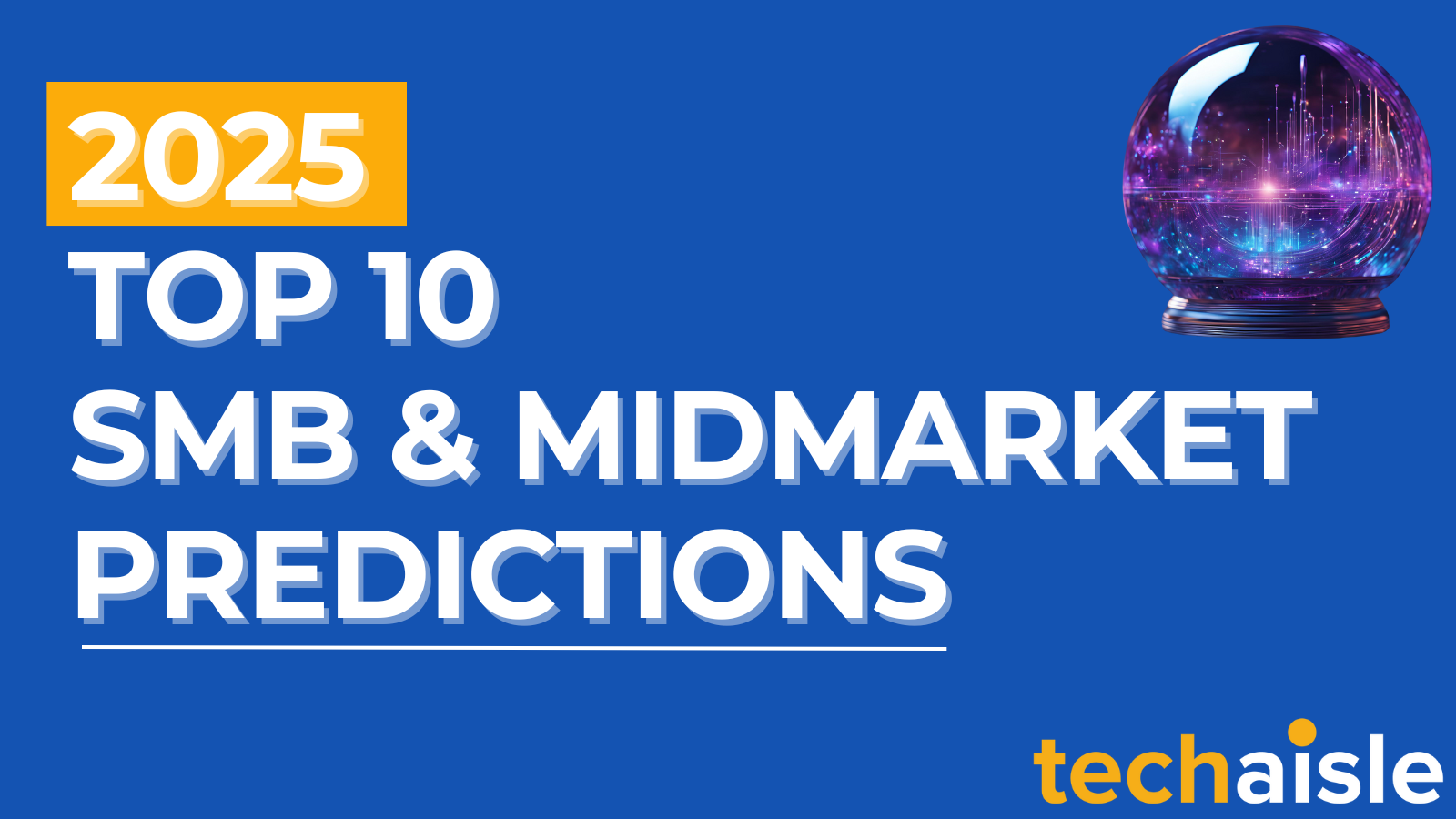Techaisle has released its annual infographics detailing the Top 10 IT Priorities, Challenges, and Business Issues for SMBs, Core Midmarket, and Upper Midmarket firms. In its 15th year of global tracking, Techaisle surveyed over 5000 businesses across various employee segments to provide a comprehensive overview of the IT market. The survey reveals key business goals, technology priorities, and IT challenges for the upcoming year, offering invaluable insights to IT vendors, channel partners, and media.
Business Issues
In 2025, Small and Medium-sized Businesses (SMBs) will encounter several significant challenges. Attracting and retaining top talent will be crucial, necessitating adaptation to technological advancements. This effort extends beyond recruitment, encompassing the attraction of skilled workers in a competitive market that demands remote work options, flexibility, and competitive benefits. It is not merely about reducing IT costs but strategically integrating new technologies such as AI and automation to enhance efficiency, customer service, and potentially product or service offerings.
Financial resilience will require meticulous financial management and risk mitigation strategies. With increasing reliance on digital tools and data, robust security measures and compliance with evolving regulations will be essential to address data security and privacy concerns. Protecting sensitive information from cyber threats will be paramount.
Meeting customer expectations will demand a focus on personalized experiences and omnichannel engagement, where customers anticipate seamless interactions both online and offline. Additionally, there will be an expectation for more sustainable and ethical business practices. Innovation and differentiation will be imperative to remain competitive, necessitating a culture of experimentation and unique offerings.
Reaching target audiences in a fragmented digital landscape will require sophisticated marketing and sales strategies. Digital marketing and sales optimization will be critical for engaging customers effectively. Building resilient supply chains will help mitigate disruptions and ensure business continuity. Compliance with regulatory requirements will be necessary to avoid penalties and maintain a positive reputation. Finally, integrating sustainability and social impact into business practices will be important for attracting and retaining both customers and investors.

Technology Priorities
Technology will be essential in overcoming the challenges facing SMBs. Advanced AI and automation will streamline operations and enhance efficiency. Beyond basic AI assessment, SMBs will explore more sophisticated applications, such as automating complex business processes using AI and machine learning. They will leverage AI to deliver personalized customer experiences and recommendations. Furthermore, predictive analytics will empower SMBs to forecast trends and make data-driven decisions.















